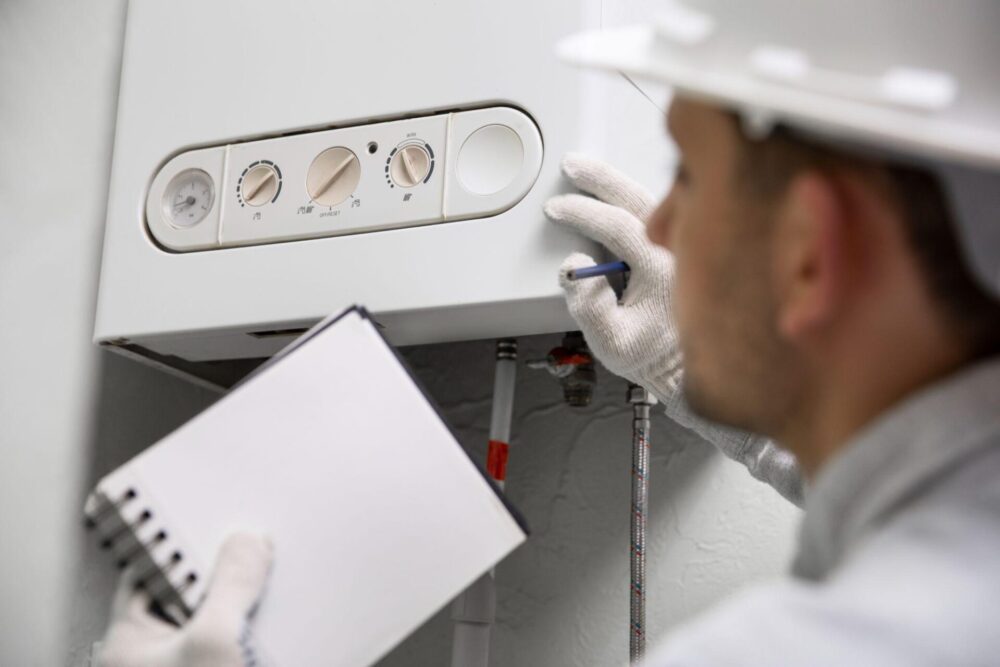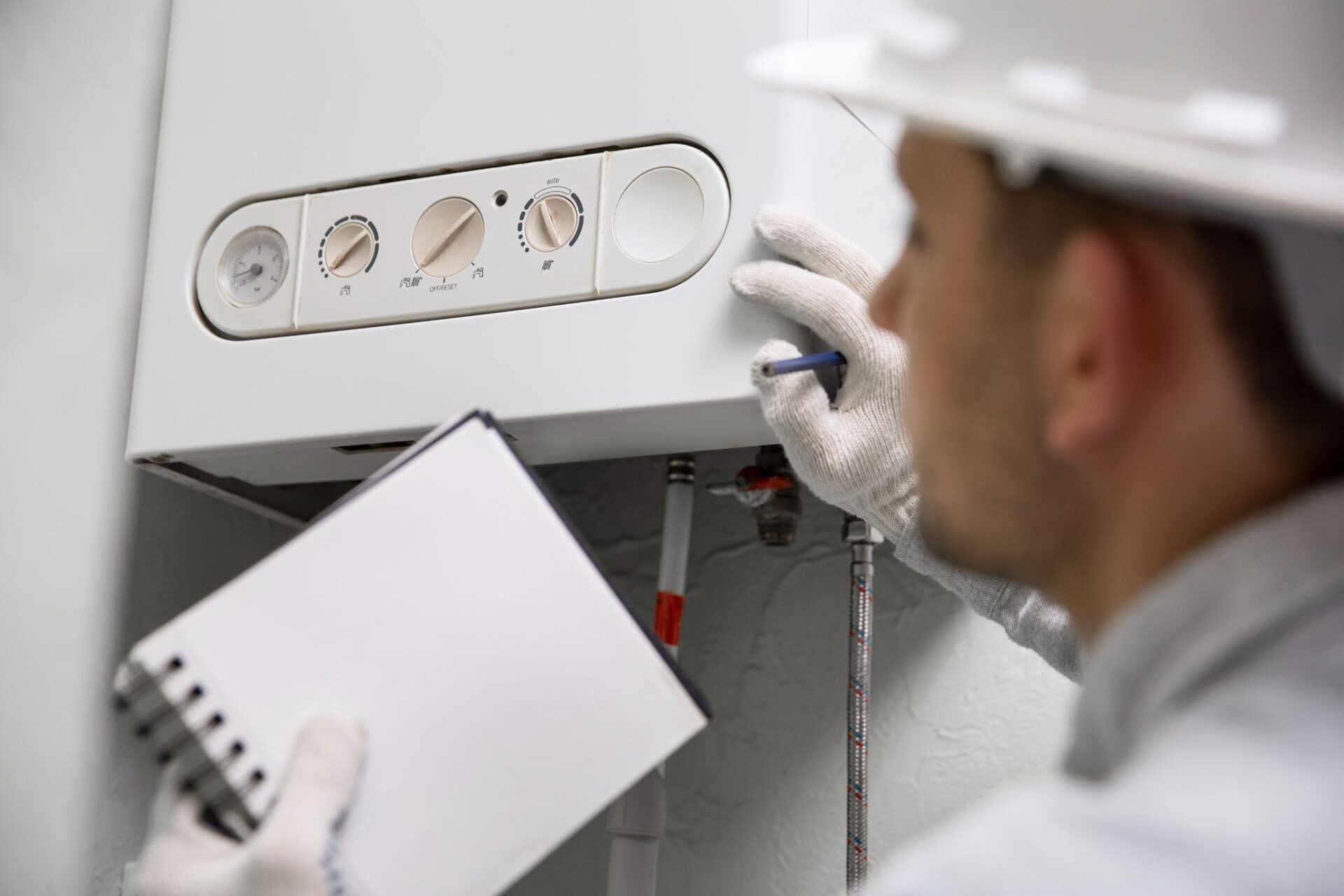A broken boiler can be a huge inconvenience, especially during the cold season. Knowing the most common problems and when to call for professional help can save you time and money.

Common Boiler Problems
- No Heat
- Boiler Making Noises
- Boiler Leaks
- Pilot Light Problems
When to call a professional
Minor boiler issues can be resolved with simple troubleshooting, however it is important to call a qualified heating engineer if you have:
- No heat or hot water
- Leaking boiler
- Unusual noises
- Carbon monoxide alarms
Choosing a Boiler Repair Technician
When choosing a boiler repair technician, make sure they are Gas Safe registered. This certification ensures they are qualified to work on gas appliances. Look for recommendations from friends, family or online reviews to find a technician with a good reputation.
Boiler maintenance
Regular boiler maintenance can prevent breakdowns and extend the life of your boiler. We recommend that you have your boiler maintained annually.
Remember: Never attempt to repair your boiler yourself unless you are a qualified engineer. Working on your boiler can be dangerous and may void your warranty.
Knowing the common signs of boiler problems and knowing when to seek professional help will help keep your home warm and comfortable all year round.
Boiler Maintenance and Energy Efficiency
Regular boiler maintenance is essential to keep your boiler running efficiently and reliably. Here are some important points to keep in mind:
Boiler maintenance
Annual maintenance: Arrange an appointment for annual maintenance with a Gas Safe registered technician.
Check pressure: Monitor boiler pressure regularly and adjust it to the recommended level.
Check pipes and radiators: Check for signs of leaks or blockages.
Bleed radiators: Bleed radiators to remove trapped air and improve heat distribution.
Energy Efficiency Tips
- Setting your thermostat: Turn your thermostat down a few degrees to reduce energy consumption.
- Bleeding your thermostat regularly: Bleeding your radiators will ensure efficient heat distribution.
- Insulation: Check and improve your home’s insulation to retain heat. Power Flush: Consider a power flush to remove sludge and improve boiler efficiency.
- Modernise: Consider upgrading to a more efficient boiler model.
By following these tips, you can help to reduce your energy bills while ensuring your boiler operates optimally.
Common boiler problems and how to solve them
Let’s take a closer look at some common boiler problems and possible solutions:
Common Boiler Problems
- Boiler Not Heating:
- Check thermostat setting and make sure heat is being called for.
- Check boiler fuse or circuit breaker.
- Make sure there is power to the boiler.
- Check pump for abnormal noises or signs of failure.
- Check system for airlocks.
- Boiler Making Noise:
- Air pockets in the system can cause gurgling or crackling noises.
- A faulty pump can cause whirring or grinding noises.
- Cooking sounds in the kettle can indicate sludge formation.
- Boiler Leaking:
- Identify the source of the leak (pipes, connections or the boiler itself).
- Look for loose connections or worn seals.
- If the leak is serious, turn off the boiler and call a professional immediately.
- Pilot Light Issues:
- Make sure the gas supply is on.
- Clean the pilot light and thermocouple.
- Follow the relight procedure in your boiler manual.
Remember: If you are unsure about any of these steps or the problem persists, always contact a qualified heating engineer.




















